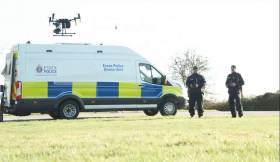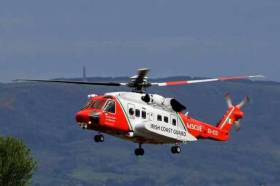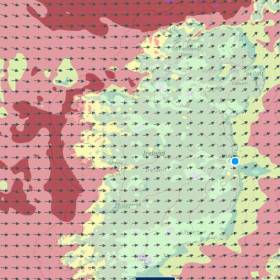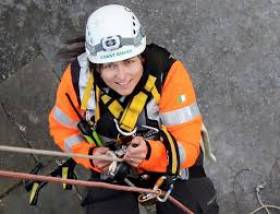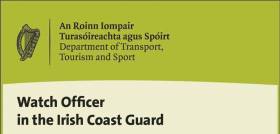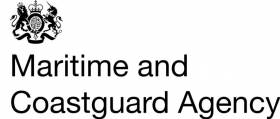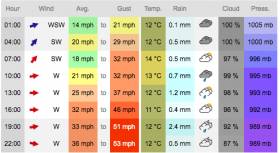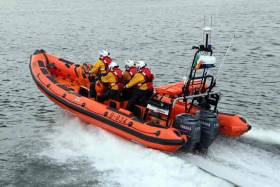Displaying items by tag: Coast Guard
Search & Rescue Drone Trial Announced in UK
For the next 12 months, a new drone trial is taking flight to support vital search and rescue action around the coast of Essex, thanks to a partnership between Essex Police, the Maritime & Coastguard Agency (MCA) and the Royal National Lifeboat Institution (RNLI).
The year-long trial, which starts today 29 April, 2019 will provide HM Coastguard Rescue Teams with more eyes in the sky to assist with search and rescue operations around the county’s coastline, supporting the vital work of their teams and the RNLI.
From helping to search for casualties in hazardous locations and directing HM Coastguard and RNLI lifeboat crews to their locations to enable emergency services to risk assess situations before deploying rescue personnel to the scene, Essex Police’s Drone Unit will provide a range of operational benefits to the search and rescue teams.
At the end of the year-long pilot the impact that drones have had on coastal search and rescue activity in the region will be assessed, and that information will help inform the MCA and RNLI’s ongoing work to explore the role that unmanned aerial vehicles (UAVs) can play in future search and rescue activity.
HM Coastguard Teams from Walton, Clacton, Mersea Island, South Woodham Ferrers, Southend and Canvey Island will be taking part in the trial, supported by a range of inshore and all-weather lifeboats and hovercraft strategically located at six RNLI lifeboat stations along that stretch of the Essex coastline.
Phil Hanson, Aviation Technical Assurance Manager at the Maritime & Coastguard Agency said the MCA was proud to be a partner and support the evolution of drones in UK search and rescue.
‘Thanks to the Essex Police Drone Unit, we are able to trial this innovative technology to help rescuers on the front line with more accurate aerial vision, conduct searches in hard to reach or hazardous areas, assist with night time thermal imagery searches and relaying messages from rescuers to casualties. This will allow rescuers to make more informed decisions and ultimately help make the coast safer – particularly as the busy season is now almost upon us.
‘One thing, we need to stress is that the drones will not replace our Coastguard helicopters, Coastguard Rescue Teams, RNLI or independent lifeboats. However, it is entirely possible that they could be an additional tool to use in search and rescue and enhance our existing capabilities.’
Essex Police Drone Manager Perran Bonner added: ‘We are delighted to be supporting the invaluable work of the MCA and RNLI in keeping our county's coastlines safe.
‘Our drone team will be available to assist both organisations in their endeavours, whether this is by providing a live view of the county's coast, investigating suspicious behaviour, responding to welfare concerns or searching for a missing person.
‘The technology available to us and the expertise of our officers mean that we can provide accurate and up-to-date information to the relevant people, ensuring that a quick and appropriate response can be taken, that Essex residents and visitors are kept safe and anyone using our coastline to commit crime are brought to justice.’
Will Roberts, Senior Innovation Manager at the RNLI, said: ‘This pilot will provide our lifesavers with the opportunity to benefit from the advantages that drones can provide when they’re searching for casualties.
‘The increased situational awareness that drones provide could play a significant role in helping us locate casualties as quickly as possible. When lives are at risk, the speed at which our crews can locate and reach a casualty is vital. Being able to see the impact that drones can have in helping our lifeboat crews search and then reach casualties through this pilot will be extremely useful.
‘As well as helping our lifesavers to search and locate casualties, working with Essex Police’s Drone Unit will also allow potentially dangerous scenes to be risk assessed before our volunteer lifeboat crews are deployed to the scene.’
Safety Bulletin Issued for all Mariners Who Use GPS Equipment
The Maritime & Coastguard Agency (MCA) has issued a special safety bulletin to all mariners that use GPS to prepare for a rollover event that will occur on 6 April 2019.
On April 6 navigation data from some older GPS systems might become inaccurate due to the ‘week number’ rollover event.
This could cause stand-alone GPS receivers and systems using GPS chips, to produce data that is 19.7 years either in the past or future, therefore generating errors in both the GPS position and time. However, if onboard equipment has been installed after August 1999, or has regular firmware updates from the manufacturer, there should be minimal risk of an error occurring.
Luke Hallett Radio Spectrum Policy Co-ordinator for the Maritime & Coastguard Agency said: ‘If your GPS is more than 10 years old or it’s had no firmware updates then you’re definitely at higher risk of you GPS not working from 6 April. If your GPS falls into either of those categories you need to check with the manufacturer before April 6, otherwise time and position data used for navigation could become inaccurate. It’s important that GPS users check their systems as soon as possible to ensure that they won’t be affected by the impending rollover.’
The MCA’s safety bulletin is intended to help operators understand the implications of the week-number rollover and to take action to ensure all GPS updates are completed. See more here
Coast Guard Assists Northern Ireland Counterparts
The Dublin based Coast Guard Helicopter R116 is assisting the Northern Ireland authorities with a search for a missing person in the Downpatrick area of Co Down. In accordance with standing arrangements, a request was received earlier this morning by MRCC Dublin from the UK Maritime Coastguard Agency to assist the PSNI with the search. The Dublin based Coast Guard helicopter arrived on scene shortly before first light – approx. 0650 and the search is ongoing. The helicopter search is being coordinated through Belfast Coastguard.
Interaction of this type is a regular feature of search and rescue cooperation between the UK and Irish authorities. This is the fourth request for Helicopter SAR support provided to NI authorities this year.
Storm Erik: Coast Guard Issues Weather Warning
In light of the severe Weather Warning issued by Met Éireann for Friday 8th February, the Coast Guard is calling on the general public and all Mariners to heed the warnings and take appropriate action. The Coast Guard is asking users of smaller vessels to pay particular attention to the weather warnings and for the general public to be mindful of the risks on exposed areas in particular piers, walkways and cliff areas. The Coast Guard wishes to remind recreational walkers to
Stay Back, Stay High, Stay Dry as sudden wind gusts or waves can result in serious accidents.
As always if you see anybody in trouble or think they are in trouble along the coast or at sea dial 112 and ask for the Coast Guard.
The following Met Éireann warnings are in place:
1) ORANGE for Galway and Mayo - southwest to west winds will reach mean speeds of 65 to 80 km/h with some severe or damaging gusts of 110 to 130 km/h. The highest winds will be in exposed coastal areas, where these values may be exceeded at times. Very high seas as well with potential for some coastal flooding, valid from 05:00 08-Feb-2019 until 13:00 08-Feb-2019.
2) ORANGE for Donegal - southwest to west winds will reach mean speeds of 65 to 80 km/h with some severe or damaging gusts of 110 to 130 km/h. The highest winds will be in exposed coastal areas, where these values may be exceeded at times. Very high seas as well with some coastal flooding, valid from 09:00 08-Feb-2019 until 06:00 09-Feb-2019
3) YELLOW for Ireland - southwest to west winds will reach mean speeds of 50 to 65 km/h with gusts of 80 to 110 km/h. Along exposed Atlantic coasts these values may be exceeded for a while and with very high seas this will give the risk of coastal flooding.
Caitríona Lucas MCIB Report Will Accelerate Advances in Coast Guard Safety Management Systems
The Marine Casualty Investigation Board has today published its report into the marine incident on 12th September 2016 which led to the Coast Guard volunteer, Caitríona Lucas, tragically losing her life.
Minister Ross said: “I wish to again express my deepest condolences to the family and loved ones of Caitríona, who lost her life so tragically, doing the volunteer work she loved. Caitríona was a talented, hardworking and deeply committed member of the Doolin Coast Guard Unit. She was a selfless member of a unique group of people, those men and women who dedicate themselves to the protection of others at great risk to themselves. Caitriona made the ultimate sacrifice and her loss has been enormous. Coast Guard volunteers, in particular the direct colleagues of Caitríona in the Units at Doolin and Kilkee, were devastated at the tragic events that unfolded on that day.”
Minister Ross welcomes the report’s recommendations in full and will be ensuring that they are all implemented. These are clearly aimed at minimising the potential risks involved in SAR boat operations into the future.
The Minister also notes that as there is a separate on-going investigation being carried out by the Health and Safety Authority that it would not be appropriate for him to comment on the detail cited in the report.
Minister Ross said:
“As an immediate response to this report, I have taken the following steps:
1) I have broadened the national SAR Framework review already underway as a response to the recent AQE Report on SAR aviation. It will now encompass the relevant recommendations arising from the MCIB report. The Review Group itself met formally on Wednesday 5 December under the independent chairmanship of Sir Alan Massey, former CEO of the Maritime and Coastguard Agency in the UK.
2) I have instructed the IRCG to accelerate its work in developing an independently accredited ISO safety management system that will be robust and fit for purpose. This work is already underway and significant effort and investment has taken place over the last two years.
3) That said, I am requiring the IRCG and the Marine Survey Office to take the necessary and pragmatic steps to ensure that any issues which could impact on vessel or crew safety are addressed as a matter of urgency.”
The Minister concluded:
“Caitríona Lucas was an extraordinary woman - brave, committed, supremely generous – and her death was an appalling tragedy. Her life will be remembered by the actions of all those involved in Search and Rescue activities. I know the Irish Coast Guard including its 900 volunteers are committed to honouring her memory. We will ensure volunteer safety remains at the heart of Search and Rescue operations”.
Watch Officer in the Irish Coast Guard
The Irish Coast Guard (IRCG), a Division of the Department of Transport, Tourism and Sport has vacancies for Watch Officers at its three Rescue Coordination Centres in Dublin, Malin Head, Co Donegal and Valentia, Co Kerry.
The IRCG provides a nationwide maritime emergency service as well as a variety of services to shipping and other Government agencies.
Watch Officers are responsible for watch-keeping on the emergency frequencies and are required to act as Marine Alert, Notification and/or Search and Rescue Mission Co-ordination Officers.
They also process marine communication traffic and respond to ship casualty, pollution incidents, vessel traffic monitoring and co-ordination of Coast Guard
helicopter operations.
For more information on this role, the eligibility requirements and how to apply, visit www.publicjobs.ie
THE CLOSING DATE FOR RECEIPT OF APPLICATIONS IS 3:00 PM (GMT) THURSDAY 29TH NOVEMBER 2018
Download press advertisement below
UK Boating Community Invited to ‘Have Their Say’ on New Proposals for Pleasure Vessels
Members of the boating community in the UK are being encouraged to ‘have their say’ on the Maritime & Coastguard Agency’s new Code of Practice for Intended Pleasure Vessels and its supporting Guidance Notices as well as some new Exemptions.
The public consultation launches today 1 August and runs for 8 weeks until the 26 September.
The Code of Practice for Intended Pleasure Vessels (IPV Code) and its supporting Guidance Notices – which will be introduced on 1 January 2019 - addresses temporary commercial use either for business purposes or as a race support boat.
The MCA is urging the boating community to read through the proposals on how they plan to make the water a safer place for everyone while giving the opportunity to legitimately operate commercially on a temporary basis for certain activities. The IPV Code team will be available to discuss the new framework at a series of key dates throughout the Southampton Boat Show.
Additionally, the MCA is replacing Marine Guidance Notice 538 on Pleasure Vessels which introduces exemptions that mark a significant positive step for the Pleasure Vessel manufacturing sector in the UK and phases out the use of ORC liferafts.
Ian Lardner, Head of Marine Technology for the MCA said: ‘We have been working extremely closely with our partners at British Marine (BM), Royal Yachting Association (RYA) and the Yacht Brokers, Designers and Surveyors Association (YBDSA) to bring about this very positive and significant step for the boating community. The new IPV Code allows people to use their Pleasure Vessels on a temporary single-voyage basis for sea trials, deliveries or race support activities, without using the existing commercial vessel codes which are intended for a more longer-term commercial use. We’re providing a simple means of compliance to rules that have always existed, with negligible burdens. We all think this a huge step forward and we hope as many people as possible will take the time to read through the consultation to see if there are any further developments we could consider.’
RYA Cruising Manager, Stuart Carruthers, said: 'The Introduction of the IPV Code and the guidance for owners to provide race support activities for a yacht or powerboat race is a very positive step and provides a much-needed solution to a number of problems that race organisers and support staff have struggled with in the past.
'In addition, the application of the IPV Code to vessels used at sea on a single-voyage basis by owners, brokers, surveyors and repairers for business purposes relating to sale, repair, post-repair or mid-survey sea trials, customer sea trials and for vessel delivery in connection with the business purpose is also welcomed and it is very much to RYA members’ advantage for this code and associated MGNs to be adopted.'
Bas Edmonds, RYA Racing Services Manager, added: 'It’s extremely pleasing to see the MCA support the delivery of our sail racing by looking to exempt those boats supporting race activities. The IPV Code and associated MGNs provide a framework of achieving compliance for owners and parents wanting to support the sport, which is hugely welcomed by the RYA.'
British Marine’s Technical Manager, Ross Wombwell said: ‘This Code of Practice for sea-trialling and transportation provides the industry with an affordable and achievable solution, and provides much-needed clarity on what had been a regulatory grey area for our members and boat owners for a number of years. British Marine is rightly proud of the work that it has done, supported by many of its members, alongside the regulator (the Maritime & Coastguard Agency), the Royal Yachting Association (RYA) and the Yacht Designers & Surveyors Association (YDSA), to develop this new process and guidance.
‘Now we need members and owners to review this Code of Practice and let us and the MCA know their thoughts - on the practicalities of applying these new rules, the benefits they bring, the costs involved etc.
‘British Marine is on hand to answer any queries from its members on this new Code of Practice and we will be engaging the membership further over the coming months, with Q&As and guidance available at TheYachtMarket.com Southampton Boat Show in September.’
Once the external consultation has closed, the MCA will draft a final set of proposals of the new IPV Code. Any new development changes within the Code will be published accordingly.
More information about the public consultation can be found on the MCA website here: Code of Practice for Intended Pleasure Vessels
If you would like to contribute your thoughts to this public consultation or if you require a hard copy of the consultation, please email [email protected]
1) Introducing the draft new IPV Code
The MCA has worked closely with British Marine, RYA, and the Yacht Brokers, Designers and Surveyors Association (YBDSA) to develop a new Code to allow for Pleasure Vessels to be in temporary commercial use at sea for specific purposes (explained below). This is a very positive step to provide a framework for what we know is wanted by the Pleasure Vessel sector.
2) When does the Code go live and can I have a say?
It is due for publication on 01 January 2019 but we’d like your feedback through public consultation on this and some associated MGNs between 01 August 2018 and 26 September 2018. The MCA, RYA and YBDSA will be on hand at the Southampton Boatshow to answer any specific questions about this new Code.
3) What does the IPV Code Do?
The IPV Code is split into two parts; 1) Use at sea for business purposes, and 2) Use at sea as a race support boat. In each part there are requirements for owners and requirements for operators. For Part 1, Operators are the people using the boat for their business, which are manufacturers, brokers, repairers, surveyors and in some cases owners can also be operators too. For Part 2 the Operator is the person using the Race Support Boat.
4) IPV Code - Temporary Commercial Use for Business Purposes
Part 1 of The IPV Code allows for Intended Pleasure Vessels (boats which are normally Pleasure Vessels) to be in temporary commercial use at sea on a single-voyage basis for business purposes relating to repair, post-production, post-repair or mid-survey sea trials, customer sea trials, or vessel delivery outside the definition of Pleasure Vessel. It is applicable to Intended Pleasure Vessels of any size which are United Kingdom vessels wherever they may be. It also applies to other Intended Pleasure Vessels operating from United Kingdom ports whilst in United Kingdom waters.
5) IPV Code – Temporary Commercial Use as Race Support Boat
Part 2 of the IPV Code allows for Intended Pleasure Vessels to be in temporary commercial use at sea on a single-voyage basis as a Race Support Boat for the purpose of Race Support Activities of yacht or powerboat racing affiliated to the National Governing Body of the Sport. It provides a standard for small (<8m) Intended Pleasure Vessels used for no more than ten occasions per calendar year as a Race Support Boat outside the definition of Pleasure Vessel either by the Owner or persons authorised by the Owner to do so. It is aimed at open boats such as Rigid Inflatables but does not prohibit use for small (<8m) decked vessels. Operators of Race Support Boats are advised that other Codes of Practice may be more appropriate for decked vessels.
6) What will you need to do as an Owner of a Pleasure Vessel
If you own a Pleasure Vessel (irrespective of whether it is owned by an individual or a company) then you are responsible for making sure that either all use is in accordance with the Pleasure Vessel definition or, if not, then appropriate commercial standards are met. If your Pleasure Vessel is going to be taken to sea for business purposes or as a race support boat on a temporary basis then it’s important that you study the draft new Code and have a look at the draft new MGNs. We’d really appreciate your feedback but it will also explain what requirements you need to meet.
7) What will you need to do as an Operator of a Pleasure Vessel
If you are taking a Pleasure Vessel to sea for business purposes as an owner, manufacturer, broker, repairer or, surveyor then you become an Operator in accordance with this Code of Practice. If the use is not temporary then you would need to seek further advice from the MCA but if the use is temporary (according to the IPV Code) then you can use this simple and easy to meet standard. The very basic requirement for use as an Operator is that you will need to have a safety management system in place but this need not be complicated. We would really appreciate your feedback so please do take a look at the Code and the associated MGNs before 26th September 2018. If you have any questions or concerns, please talk to the MCA, BM, YBDSA or RYA.
8) MGN to Replace MGN538
The MCA has also re-written the MGN on the regulations applicable to Pleasure Vessels. This gives a better explanation of the framework, it introduces the term “Intended Pleasure Vessel” and it includes two key new things. Firstly, we have amended the Class XII LSA Exemption for Pleasure Vessels of 13.7m in length and over to phase-out the use of ORC liferafts (this is relevant to Pleasure Vessel owners). Secondly, we have introduced a new Exemption which allows for RCD compliant vessels to not follow Class XII Regulations for certain fore protection measures (this is relevant to Pleasure Vessel manufacturers). Finally, the entire document has had a complete re-fresh and we’ve update all references and improved the flow and simplified the explanations. That being said, we’d still really appreciate your feedback so please do take a look at the draft and let us know what you think.
Coast Guard Warns of Heavy Swell on Atlantic Coast
The Coast Guard advises caution to public as Met Éireann warns of heavy swell on Atlantic Coast later on Sunday.
Members of the public have been urged to heed the advice of the Coast Guard as Met Éireann has issued a status yellow wind warning with some very strong west, veering northwest winds expected to affect western and south western coastal counties later Sunday, overnight and into Monday morning with very high seas along the coasts during this period.
The Coast Guard advises the public to be careful on exposed coasts, cliffs and piers, harbour walls and promenades along the Atlantic seaboard particularly at high tide.
Remember to Stay Back, Stay High and Stay Dry.
If you see someone in difficulty in the sea, on the shore dial 999/112 and ask for the Coast Guard.
Overdue Dinghy Sailor's Boat Found Without Anyone on Board
A 90-year-old sailor is feared missing after his empty dinghy was found adrift off the Welsh coast.
Arthur Ray Taylor, known as Archie, was last seen at 9.30am on Saturday, when he left his accommodation to take his dinghy out from Gwbert boat club, Ceredigion, Dyfed-Powys Police said.
A large air and sea search was launched by the Milford Haven Coastguard and RNLI after they were alerted that he had not returned that evening.
A Coastguard spokesman said: "At 5.15pm on Saturday the Coastguard was contacted about an overdue dinghy sailor, aged 90 years old, who had not returned after a trip out on the water during the day and his small boat was found in Cardigan without anyone on board.
"The Coastguard rescue helicopter from Caernarfon, Cardigan, Gwbert and Moylegrove Coastguard Rescue Teams and RNLI lifeboats from Cardigan and Fishguard were all involved in the search along with Dfyd Powys Police.
"After a thorough search of the area, nothing further was found and the search was suspended overnight.
"Milford Haven Coastguard has resumed a search operation in the area this morning."
Police have appealed for anyone who has seen Mr Taylor or knows his whereabouts to contact them.
They described him as 5ft 4ins, of slim build and with grey hair. He was wearing a navy jumper and dark grey waterproof jacket.
Sightings or information can be reported to police by dialling 101 and quoting incident reference 251 of April 15.
Killybegs Coast Guard RIB Takes Dive Boat Under Tow
The volunteer crew of Bundoran RNLI Lifeboat were requested to launch this afternoon to assist a dive boat with 4 persons on board, which had broken down.
The alarm was raised around 1:50pm with Malin Head Coast Guard who immediately requested the launch of the Bundoran Lifeboat and also tasked the Killybegs Coast Guard RIB.
The Bundoran Lifeboat launched at 2pm to the dive boat which was around a mile north of Bullockmore, (west of St John’s Point). The Killybegs Coast Guard rib took the dive boat under tow to Killybegs Harbour with the Bundoran Lifeboat accompanying both vessels.
On returning to the station around 90 minutes later, Volunteer Lifeboat Crew member with Bundoran RNLI Richard Gillespie said ‘the people on board the dive boat were absolutely correct to call the Coast Guard and have ourselves and Killybegs launched. While they were in no immediate danger, the longer they left the call, the more chances there were of something going wrong. We would always encourage boat users to contact the Coast Guard on the first sign of a problem so we can be there to help sooner rather than later.’



























